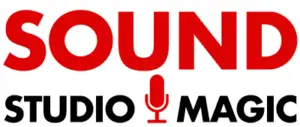In recent years, the music industry has witnessed a rise in the popularity and affordability of personal recording studios. Many aspiring musicians and producers have begun exploring the potential for making money with a recording studio. The question arises, can one actually make a significant income from offering studio services?
As it turns out, the answer is yes – but it requires a combination of skill, strategic planning, and resourcefulness. Earnings for a recording studio can vary, with home studios potentially charging anywhere from $50 to $100 per hour, resulting in substantial annual revenue if operating efficiently. Some studios expand their services to include mixing, mastering, and producing music for other artists, increasing their income potential.
Additionally, the advancement of technology and software has made it easier for creatively inclined individuals to make money with their recording studio setup. One can monetize the knowledge and the raw sounds they create in their studio.
The key to success, however, lies in diligent research, investing in quality equipment, and maintaining a carefully curated selection of services to attract a diverse clientele.
Table of Contents
- Assessing the Market
- Investing in Quality Equipment
- Diversifying Your Services
- Setting Competitive Pricing
- Marketing and Promoting Your Recording Studio
- Additional Revenue Streams
- Conclusion

Assessing the Market
Before venturing into the recording studio business, evaluating the market and identifying potential revenue streams is crucial. The market is diverse, and there are multiple ways to generate income with a recording studio, such as pre-production and demo tracking, mixing, and mastering services.
One way to assess the market is to analyze the competition in your area. Find out how many recording studios operate within your target region, their services, and their pricing. This information can help you determine the demand for specific services and how to position your offerings competitively.
Another crucial aspect to consider is identifying your target clientele. Musicians, bands, and content creators represent potential customers, but it’s essential to niche down and focus on specific genres or services to differentiate yourself from competitors.
For instance, some studios may specialize in live band recordings, while others might focus on electronic dance music production.
Remember that technological advancements have brought new opportunities and challenges to the industry. Home studios and digital audio workstations (DAWs) are increasingly popular, giving artists more control over recording processes. This trend affects demand for recording studios and offers new possibilities, like monetizing raw sound creations.
Finally, pay attention to marketing trends and strategies that can help promote your recording studio. Social media advertising, pay-per-click marketing, and influencer marketing are effective ways to reach the right audience and attract potential clients.
Investing in Quality Equipment
Investing in quality equipment is one of the key factors that can contribute to the success of a recording studio. High-quality equipment not only improves the sound of recordings but also attracts more clients who are looking for professional results. However, various investment levels depend on your budget and goals.
While starting a quality home studio with a modest budget is possible, you will certainly need to invest more than just a few hundred dollars if you aim to produce professional-quality recordings.
For instance, a proper home studio would require a mix of essential gear, such as microphones, audio interfaces, studio monitors, headphones, and acoustic treatment materials.
When selecting equipment for your studio, it’s vital to prioritize your needs in terms of quality, functionality, and compatibility with your existing gear. Here are some aspects to consider:
- Microphones: Invest in various microphones to accommodate different recording scenarios, including large diaphragm condenser microphones for vocals and small diaphragm condenser microphones for instruments.
- Audio interfaces: Choose an audio interface with enough inputs and outputs for your recording needs and one that integrates well with your computer and digital audio workstation (DAW).
- Studio monitors: Reliable studio monitors are crucial for accurate mixing and mastering, so it’s important to invest in a pair that provides clear and precise audio reproduction.
- Headphones: Closed-back headphones are ideal for tracking, while open-back headphones work well for mixing. It’s a good idea to have both types available for different tasks.
- Acoustic treatment: Quality acoustic treatment can significantly improve the sound in your recording space, preventing unwanted reflections and enhancing the clarity of recorded tracks.
Investing in the right equipment for your recording studio can increase its profitability and reputation. By prioritizing quality and versatility, you can better cater to a wide range of clients and projects, ultimately positioning your studio for sustainable success in the music industry.
Diversifying Your Services
One effective approach to making money with a recording studio is diversifying your services. This increases your potential revenue streams and attracts a wider range of clients with different needs.
Offering various services can also help your recording studio stay competitive in the evolving music and audio production industry.
While traditional music recording services are still essential, there are other services that you can consider adding to your portfolio:
- Podcast recording and editing: With the increasing popularity of podcasts, providing a professional recording environment and editing services can open up new opportunities for your studio. You can even record adverts or audio content besides podcasts.
- Mixing and mastering: Many clients prefer to have their projects mixed and mastered in the same facility where they record their music. You can offer a more comprehensive service by developing your mixing and mastering skills or hiring additional personnel with these skills. Adding mixing and mastering to your price list can contribute to turning a profit from your studio.
- Sound design and post-production: Sound design and audio post-production for film, television, and video games can be a lucrative addition to your services. This lets you record and produce music and create soundscapes and effects for various media projects.
- Music production lessons: Sharing your knowledge and experience through music production lessons can be a value-added service. Workshop or one-on-one classes can attract aspiring producers and musicians who want to learn production techniques and improve their skills.
By offering various services, your recording studio can appeal to different types of clients and help you secure a steadier flow of projects, ultimately increasing your revenue potential.
Setting Competitive Pricing
To make money with a recording studio, setting competitive pricing is essential. Competitive pricing means offering rates similar to those of your competitors. You can start by researching what other engineers in your area are charging.
Remember that if you’re starting out, your rates will likely be less than those with more experience and accolades.
There are various pricing strategies, ranging from cost-plus pricing to value-based pricing. When setting your rates, consider factors such as the project’s complexity, the amount of time involved, and any additional services you might provide, such as mixing or mastering.
As your skills and reputation grow, you can adjust your pricing accordingly.
One way to showcase your skills and attract potential clients is to offer promotional rates or discounts for first-time customers. This can help build long-term relationships and expand your client base. Be sure to balance offering competitive rates and ensuring a sustainable income.
In addition to setting competitive pricing for individual services, consider offering packages that bundle various services together. These could include recording, mixing, mastering, or other combinations that cater to your clients’ needs. Offering packages can make your services more appealing and provide additional value to customers.
Marketing and Promoting Your Recording Studio
Effectively marketing and promoting your recording studio is crucial to attracting clients and generating income. Start by targeting your audience, focusing on attracting musicians and bands that fit your studio’s expertise and resources. Offer niche services or specialize in specific genres to help your studio stand out from competitors.
To showcase your studio’s capabilities and equipment, create a strong online presence with a user-friendly website and active social media channels.
Share high-quality content, such as professional photos of your studio, equipment, completed projects, and engaging stories about client experiences and testimonials. This will help potential clients understand why they should choose your studio over others.
Networking is another key aspect of promoting your recording studio. Attend local music events, connect with musicians and bands in your area, and collaborate with other music industry professionals to expand your client base. Establishing relationships with local music schools, colleges, and other educational institutions is also helpful in spreading the word about your studio.
Attracting clients can be further enhanced by offering promotions, perks, and sales. Consider providing incentive-based referral programs, discounts for new clients, package deals, or time-sensitive offers to entice potential customers to book your services. For instance, some studios offer perks like free pre-production consultations or discounted rates for multi-day bookings.
Lastly, don’t underestimate the power of collaboration and partnerships. Team up with other businesses in the music industry, such as rehearsal spaces, music stores, and instrument rental companies, to cross-promote each other’s services and widen your reach in the local music community.
Additional Revenue Streams
Aside from the traditional hourly rate for recording services, there are other ways to generate additional revenue streams for a recording studio.
1. Pre-production and demo tracking: Studios can offer pre-production and demo tracking services to help artists develop their songs before starting the full recording process. This can include arrangement consultations and recording rough versions of the tracks.
2. Mixing and mastering: These post-production services help enhance the sound quality and overall presentation of recorded tracks. By offering these services, studios add value to their client’s projects and generate additional income.
3. Music production and beat making: A recording studio with in-house music producers can make custom beats and instrumentals for artists or sell premade tracks on platforms such as BeatStars.
4. Licensing and selling stems: Studios can sell or license their original source tracks, beats, and stems for usage in other projects or remixes, creating a passive income stream.
| Revenue Stream | Description |
|---|---|
| Pre-production and demo tracking | Help artists develop songs and record rough versions |
| Mixing and mastering | Enhance sound quality and overall presentation of recorded tracks |
| Music production and beat making | Create custom beats and instrumentals or sell premade tracks |
| Licensing and selling stems | Sell or license original source tracks, beats, and stems for other projects |
By diversifying and offering these additional services, a recording studio can maximize its profit potential and maintain a steady income stream.
Conclusion
Running a recording studio can be profitable for those who develop diverse services, from music production to podcast recordings, workshops, and more. As with any business, flexibility, innovation, and continuous growth in your skillset are key factors in creating a successful studio.
While professional studios may have more advanced equipment and charge higher rates, home studios can still generate income by offering more affordable options to clients, such as recording, monitoring, production, mixing, and mastering services. Creating packages catering to different clients’ needs can help set competitive rates.
To make your studio stand out, consider participating in the broader community and not just focusing on musicians. Moreover, marketing skills will be crucial in generating business, so honing these abilities will benefit you in the long run.
Ultimately, the success of a recording studio relies on finding the right balance between quality services, competitive pricing, and effective marketing strategies. You can create a thriving recording studio business by staying adaptable and prioritizing customer satisfaction.
- Review of the ALABS IRON MINI-WL: A Powerhouse Wireless Microphone - October 4, 2023
- What is a Saturator in Music Production: A Brief Explanation - May 11, 2023
- What Are Rotary DJ Mixers? An Overview - May 11, 2023
SoundStudiomagic.com is a participant in the Amazon Services LLC Associates Program, an affiliate advertising program designed to provide a means for sites to earn advertising fees by advertising and linking to Amazon.com. We also participate in other affiliate programs which compensate us for referring traffic.

